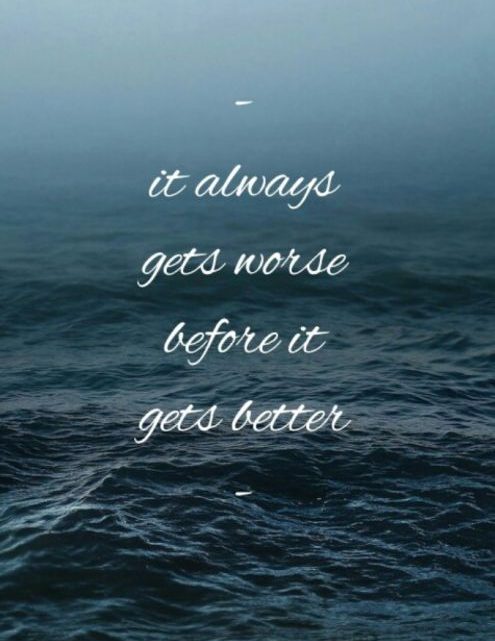
It’s Going to Get Worse Before It Gets Better
November 8, 2018On Wednesday night, an ex-marine opened fire at a country music bar west of LA, killing a dozen people, including a sheriff's sergeant, before apparently taking his own life. It was the latest spasm of mass murder by gunfire in a country where such tragedies have become not just routine but seemingly inevitable. As the New York Times reported, some of the survivors from the Wednesday shooting, at the Borderline Bar & Grill, had escaped the mass slaughter at the Route 91 Harvest Music Festival that killed 58 and wounded over 800 more in Las Vegas last October. Now they found themselves in the midst of a fresh nightmare barely a year later.
In decades past, a disaster like Wednesday's would have demanded total attention from the powers that be in Washington. As recently as 2012, after the Sandy Hook shooting, opponents of gun control were under fresh pressure to act, and legislation attempting to deal with mental health and other loopholes—the California shooter was said to suffer from psychological problems like PTSD—was at least seriously debated on Capitol Hill, even if those conversations didn't result in any major new laws.
Mass shootings since Donald Trump became president have shown even that level of dialogue is now the stuff of nostalgia—no one thinks Republicans will actually pass laws to deal with mass gun violence. And even if newly-empowered House Democrats manage to pass some kind of gun control measure, it's not likely to attract a whole lot of attention or energy.
That's because the newest chapter in the incredibly long story of angry men murdering people with guns in America came after a span of roughly 24 hours in which the entire political and legal system seemed, once again, to shake at its very core. A uniquely disturbing confluence of events, ranging from an unusually unhinged press conference by an angry president to the appointment of his lackey atop the Justice Department, set an ominous tone for the next two years. If you thought that the Democrats winning victories in the midterms would put the country on a more even keel, I have a ticket to Trump University to sell you.
In fact, as bad as the Trump era has been, Americans may be in for an even more chaotic, divisive, and violent stretch in the weeks and months to come.
After Democrats (mostly) cleaned up on Tuesday, no one actually expected Donald Trump to act like a president who had just been rejected and cost dozens of his party's incumbents their jobs. But in addition to blustering on Twitter about his party's great success—Republicans did win seats in the Senate—Trump forced out Attorney General Jeff Sessions, a man once derided by Democrats as an unreformed possibly neo-Confederate stooge but who had emerged as a sort of check on Trump's worst impulses. Most importantly, even as he sent the criminal justice system into retrograde, Sessions recused himself from the Russia investigation—he had been a key part of Trump's campaign and had misled Congress about meetings with Russians, so this was a responsible move. The recusal effectively protected Robert Mueller's probe, because Sessions's second in command, Rod Rosenstein, was a mainstream career prosecutor who consistently expressed confidence in Mueller's integrity.
But when Trump on Wednesday replaced Sessions with the AG's spokesman, a former Iowa US Attorney named Matthew Whitaker, he took one of his most shameless steps yet to handicap the investigation into his campaign. In addition to being a hardcore Trump acolyte, Whitaker has explicitly suggested in partisan op-eds and cable appearances that Mueller may be engaged in a "witch hunt" and overstepping his mandate in probing the president's personal finances; he also appears to have personal conflicts of interest in the case. This is to say nothing of Whitaker having reportedly threatened someone victimized by a company the feds labeled a scam as recently as 2015. That's a lawman in Trump's own image, if ever there was one.
We still don't know how or whether Whitaker will interfere with Mueller, but initial reports suggested he had assumed supervisory authority over the probe, replacing Rosenstein in that role. And while House Democrats have made noise about using their bully pulpit to give Mueller a platform if he were fired—and can fire off their own subpoenas—the Justice Department under Whitaker remains the only real mechanism for compelling presidential cooperation with outside probes. There's a chance Whitaker's appointment gets challenged in court, as it was ostensibly carried out under a somewhat contested law concerning federal appointments. And Trump may well formally nominate someone else to take on the gig full time. But so long as Whitaker's in that role, and it could be for months, the ability of anyone to rein Trump is in worse shape than it was on Tuesday.
Also Wednesday, the president delivered an unusually aggressive rejoinder during his press conference, lashing out at CNN's Jim Acosta for asking him about the racist migrant caravan ads that amounted to the GOP's closing argument with voters. Pundits are still debating whether those ads "worked" or not—that seems impossible to discern—but the president rehashing his "enemies of the people" rhetoric about the media was jarring. We knew Trump wasn't going to admit he'd become extremely unpopular—his ego does not allow that. And Trump has routinely sparred with the press, and Acosta in particular. But for the president to behave the way he did, and for his press secretary to subsequently tweet a doctored video of the back and forth between Trump and Acosta and falsely suggest the reporter grabbed a press intern, clarified that the reality-based community still does not include the people living in the White House.
The president also doubled-down on hate Wednesday, calling a black reporter's question about white nationalism "racist." Within hours of that surreal encounter, a prominent white nationalist—whose far-right group's slogan "You will not replace us" became the slightly more infamous "Jews will not replace us" chant at Charlottesville last summer—tweeted a photo of himself appearing at the White House. The picture apparently stemmed from a visit last month, but regardless of when picture was taken, it served as a reminder that white nationalists of all stripes have been emboldened under this president, and some have enjoyed disturbing access to the highest corridors of power. A couple dozen House seats changing hands—and Democrats having new investigatory powers—is unlikely to make such people feel less safe in expressing themselves, violently or otherwise.
Donald Trump is not responsible for every bad thing that happens in America. The press was already distrusted by many Americans before his vitriolic campaign—though it certainly stoked their enmity—with citizens increasingly siloed into their own closed communities, both online and off. And maybe Robert Mueller, reportedly writing up his final report on the president's alleged obstruction of justice and collusion, will be allowed to see his work through; whether that report sees the light of day is another matter. But the last day or so has shown how chaotic politics under Trump will remain until at least 2021. Americans, in spite of a buzzing economy, were not high on the national outlook when they went to the ballot box for the midterms, exit polls showed. What's happened since suggests their long national nightmare is nowhere near over. Gun reform is a nonstarter, white nationalists are not about to be reined in by this Congress, the media is still a target, and the president has loyalists atop the legal system, from the Department of Justice to the Supreme Court.
In fact, things may only get worse from here, as Democrats lob threats to actually check the president's power and Trump responds with tantrums. As for policies that might address any of the root causes behind mass shootings like the one in California, we'll just have to wait for the next Congress.
Sign up for our newsletter to get the best of VICE delivered to your inbox daily.
Follow Matt Taylor on Twitter.


